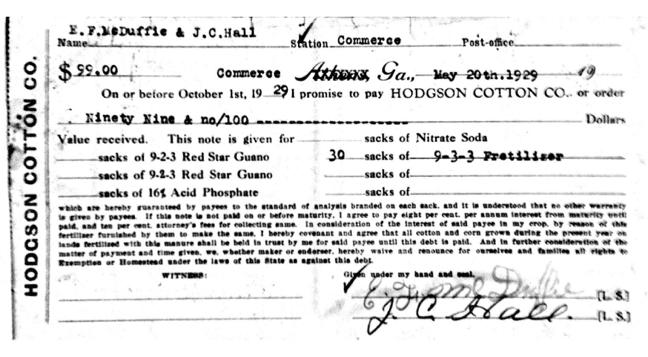The Vault is Slate’s history blog. Like us on Facebook, follow us on Twitter @slatevault, and find us on Tumblr. Find out more about what this space is all about here.
A commonplace of Southern rural life in the late-19th and early-20th centuries, these long-forgotten promissory documents, nicknamed “guano notes,” are among the most unique forms of debt in American history.
In the mid-19th century, Peruvian bird dung known as “guano” was prized as a fertilizer more powerful than common manure. In the South, the name stuck even after the South American guano deposits ran out in the 1870s, and “guano” became shorthand for a variety of commercial fertilizers that were essential on cotton and tobacco farms after the Civil War. Former slaves and poor white sharecroppers found themselves farming on land so exhausted that obtaining fertilizer was the first step in raising the year’s crops each spring. If a farmer was short on cash—and most were—he would have to sign a guano note.
Beholden to landowners and merchants for their livelihood, sharecroppers fought to eke out a living amidst a landscape of inequality and insecurity. Fertilizer promised to help them grow better crops, but guano notes made sure this promise had many strings attached. Almost every guano note carried a pernicious stipulation: Anyone who failed to pay back their fertilizer debt by the agreed-upon date waived legal protections on their homes, personal property, and livestock.
In his autobiography, the Alabama tenant farmer Ned Cobb emphasized that obtaining each season’s fertilizer was essential to succeeding as a farmer. At the same time, Cobb learned that signing a guano note thrust black farmers like himself into a vulnerable position—his landlord used fertilizer debt as one of many tools to keep his tenants in debt and dependent. Even though fertilizer promised a better harvest, guano notes helped ensure that merchants, rather than farmers, would profit.
